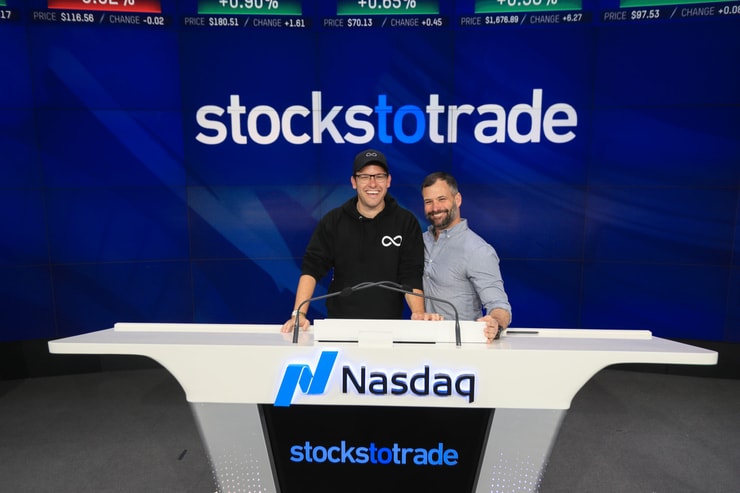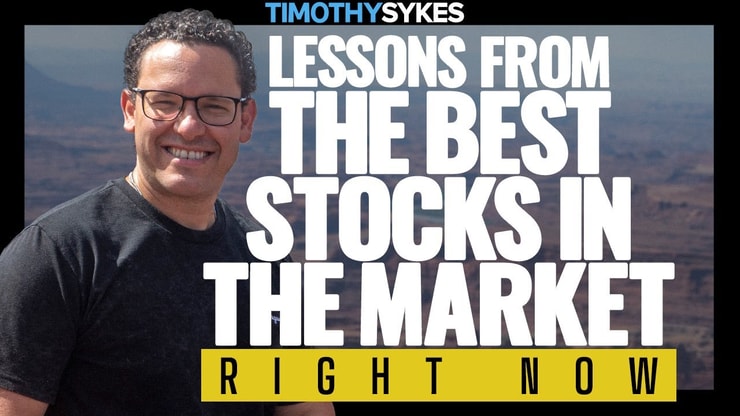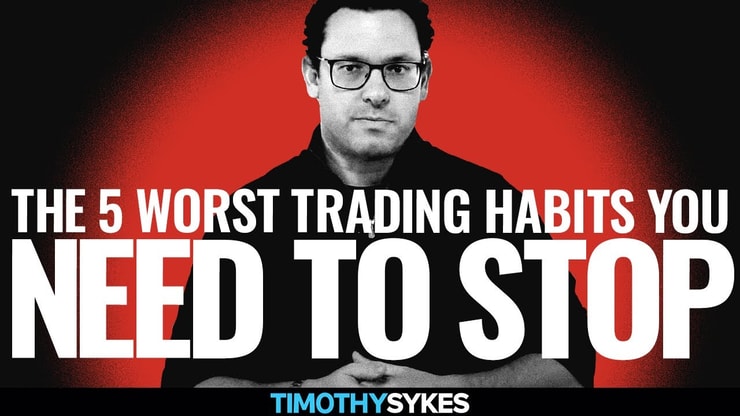Buying stocks in Canada isn’t drastically different from other countries, but you do need to navigate some specifics like the TSX (Toronto Stock Exchange), CAD (Canadian Dollar), and Canadian regulations. You can engage in trading through various platforms, brokerages, or even robo-advisors. The game’s the same: Buy low, sell high. But for that, you need an account, a strategy, and a good understanding of the market, not just in Canada but globally.
You should read this article because it provides a comprehensive guide to buying stocks in Canada, covering everything from understanding basic terminology to managing your investment portfolio. As someone who has traded all kinds of equities, from pink sheets to Nasdaq-listed companies, knowing the rules of the game is half the battle.
I’ll answer the following questions:
- What is the Toronto Stock Exchange (TSX) and how does it differ from other stock exchanges?
- How do Canadian regulations impact stock trading?
- What are the benefits and risks of investing in stocks in Canada?
- How do you prepare financially for investing in stocks?
- What factors should you consider when choosing a trading platform or brokerage account in Canada?
- How do you research and select stocks for investment?
- What are the key differences between market orders and limit orders?
- How can you manage and monitor your investment portfolio effectively?
Still with me? Good. Now let’s dig into the details.
Table of Contents
- 1 What Is a Stock?
- 2 Understanding the Basics of Investing in Stocks
- 3 Preparing To Invest in Stocks
- 4 Choosing the Right Platform and Account
- 5 Researching and Selecting Stocks
- 6 How To Buy Stock
- 7 Managing and Monitoring Your Investments
- 8 Key Takeaways
- 9 Frequently Asked Questions
- 9.1 How Old Do You Have to Be to Invest in Stocks in Canada?
- 9.2 Can You Buy Stocks in Canada Without a Broker?
- 9.3 How Can Beginners Invest in Stocks in Canada?
- 9.4 What Payment Methods Can You Use to Buy Stocks?
- 9.5 Who Can Buy Stocks in Canada?
- 9.6 What Financial Approvals Are Needed?
- 9.7 What Should I Consider Before Buying Stocks?
- 9.8 Are There Any Disclaimers to Note?
- 9.9 How Do Mortgages Affect Your Ability to Invest?
- 9.10 Can Employers Help With Stock Investments?
What Is a Stock?
Stock represents ownership in a company. When you buy a stock, you own a piece of the business. Essentially, it’s a share of the company’s assets and earnings. I’ve traded a plethora of stocks in my career, spotting patterns and making timely moves. Don’t think of a stock just as a ticker symbol or a thing on a screen that moves up and down. It represents real business, and understanding that business is key to profitable trading.
Understanding the Basics of Investing in Stocks
When you’re diving into the world of investing, understanding the basics is like step 1 in trading: crucial. You’re not dealing with OTC markets here, but rather with securities like equity stocks. Prices fluctuate due to a variety of factors, including interest rates, and the industry businesses are in—think Tesla and Apple. You might come across terms like dividend reinvestment plans and stock purchase plans, designed to make your investment process smoother. Information is your best friend here, just as in trading. Look out for credible articles and content that can serve as your guide.
Why Invest in Stocks?
Stocks offer a way to grow your investment portfolio over time. With my strategy of tight risk management, the gains can add up. You might even receive dividends, a portion of the company’s earnings distributed to shareholders. The bottom line is: stocks offer a potentially high return on investment (ROI) compared to other asset classes like bonds or ETFs.
Platforms like Reddit have become a significant influence in shaping investment decisions. Reddit forums can provide valuable insights into market trends, especially in the Canadian context. However, it’s crucial to remember that while Reddit can be a great source of information, it shouldn’t be your only guide. For a comprehensive look at how Reddit impacts stock investments in Canada, check out this extensive guide on investing in stocks in Canada through Reddit.
Benefits and Risks of Investing in Stocks
Stocks offer the potential for significant returns and dividends. But remember, the higher the potential for profit, the greater the risk. I always say, manage your risk tolerance. Don’t bite off more than you can chew; you don’t want to blow up your account.
More Breaking News
- Cheetah Net Supply Chain Service: Is It Ready for a Huge Leap Forward?
- Are Promising Trials Fueling Citius Oncology Stock Surge?
- Janux Therapeutics Rises: What’s Fueling the Stock’s Growth?
Stock Market Terminology Explained
Understanding market lingo is critical. We’re talking about terms like “bid,” “ask,” “volume,” and “market orders.” When I started out, not knowing these terms was like navigating a maze blindfolded. Get your due diligence done; it’ll make your trading life easier.
Preparing To Invest in Stocks

Preparation is key, whether you’re an investor or a trader. Take stock of your financial situation. What’s your income like? What are your needs and goals? What’s your risk ratio? Do you have outstanding loans or credit card debt? Your credit score can also impact your options for brokerage accounts. Evaluate your resources, including bank accounts and other financial products. Some people even use calculators available online to crunch the numbers. It’s not just about preparing your cash but also preparing yourself.
Define Your Goals and Strategies
Before you place your first trade, know what you want to achieve. Are you looking for long-term growth, dividends, or quick gains? I’ve always been transparent about my strategy: quick in and out with small gains.
Assess Your Risk Tolerance
As I often say, know your risk tolerance. You don’t want to go chasing massive returns and end up with substantial losses. Risk is an inevitable part of both trading and investing, and being clear about how much you can stomach is crucial.
Choose Your Investing Style (Active vs. Passive Investing)
Active investing involves hands-on approach, constantly buying and selling. Passive investing involves buying and holding. For someone who has made a living day trading, I can attest that both have their pros and cons. But make a choice that suits your goals and risk tolerance.
Choosing the Right Platform and Account

When it comes to trading or investing, the platform you choose can make or break your results. Brokerage firms offer a range of services, including different types of accounts like savings accounts and even retirement accounts like RESP and GIC. Commissions and other costs are a significant factor to consider. Some brokerage accounts come with discounts for more considerable amounts, but make sure you read the fine print. For Canadians, banking institutions like TD also provide these services.
Selecting the right platform is just the beginning. If you’re deeply interested in the stock market, you might even consider becoming a stock broker. This career path offers a more in-depth understanding of the market and can be financially rewarding. However, it requires a specific set of skills and qualifications. For those interested in taking this route, here’s an extensive guide on how to become a stock broker in Canada in 2024.
How To Choose a Direct Investing Account
Choosing the right investment account is pivotal. For instance, if you’re Canadian, consider tax-advantaged accounts like TFSA or RRSP. From my extensive experience in using multiple trading platforms, I can tell you that the platform you choose will shape your trading experience.
Registered vs. Non-Registered Investment Accounts
Registered accounts offer tax benefits but come with restrictions like contribution limits. Non-registered accounts offer more flexibility but no tax benefits. Both have their place, but understand the difference.
How To Select a Good Canadian Brokerage
Look for low fees, a range of investment options, and good customer support. I’ve interacted with many brokerages and even a marginal fee can eat into your profits. Make sure to read reviews and maybe even test out the platform before fully committing.
Popular choices include Wealthsimple and Questrade. But don’t just take my word for it, dig deep and choose wisely.
Researching and Selecting Stocks

Once you’re prepared, the next step is to get down to the nitty-gritty details through analysis. You’re going to want to research potential investment opportunities. In trading, I don’t believe in stocks; I trade patterns. Investors, however, should understand the businesses behind the stocks. Resources like online articles and site pages can provide valuable investment advice. Tesla and Apple are trendy picks, but are they right for your portfolio?
When you’re diving into stock research, it’s essential to understand that not all stocks are created equal. There are different types, such as growth stocks, value stocks, and dividend stocks, each with its own set of characteristics and risk profiles. Knowing the differences can help you tailor your investment strategy more effectively. For a detailed breakdown of the different types of stocks, check out this comprehensive guide on different types of stocks.
Research the Companies You Want to Invest In
Do your homework. Read up on companies, sectors, and industries. Assess financials like EPS and consider the company’s potential for growth. Just as I analyze stock patterns, you need to analyze companies before you invest.
How To Compare Types of Stock
There are various types of stocks — from value stocks to growth stocks. Compare them based on your investment goals, risk tolerance, and expected returns. Don’t forget to look at dividends if that’s a factor for you.
What To Look for When Buying a Stock
Look at the stock price, but also look beyond it. Consider other factors like market demand, earnings reports, and even current events that might impact the stock. Think of it as how I look at trading volume and stock price to gauge the market’s mood.
How To Buy Stock

Ready to make your stock purchase? Whether it’s through brokerage accounts or a stock purchase plan, the transaction usually involves choosing the number of shares, setting your payment method, and confirming the purchase. Watch out for commissions that can add to your overall cost. Just like in trading, knowing your entry point is crucial, and you should be aware of the prices before hitting that ‘Buy’ button.
How To Place a Trade
Placing a trade involves several steps. First, you need to log into your brokerage account, then locate the stock symbol of the company you’re interested in. Choose the type of order you want to place: market order or limit order.
Market vs. Limit Orders: Understanding Order Types
The main difference between market orders and limit orders is control. Market orders execute immediately at the current market price, while limit orders only execute at a price you’ve set. It’s about your level of comfort and how precise you want to be with your trades.
How To Invest in US Stocks from Canada
Investing in U.S. stocks from Canada is straightforward with the right brokerage account that offers access to international markets. Keep in mind the currency exchange rates and any additional fees.
Buying Stocks in Canada Without a Broker
Yes, you can buy stocks without a broker through direct investment plans, but it’s more hands-on and typically limits you to purchasing shares of the particular company offering the plan.
How Many Stocks Should You Own?
The number of stocks you own should align with your investment strategy and risk tolerance. Diversification is key to balancing risk. Just as I don’t bet the farm on a single trade, don’t put all your eggs in one basket in investing either.
Managing and Monitoring Your Investments
After the sale, the game isn’t over. Monitoring your investments is continuous. Keep an eye on how interest rates, the performance of individual companies like Tesla or Apple, and even global events affect your portfolios. Use online tools and services to keep track. Your brokerage firm might offer these, or you can find a third-party service. Just as in trading, keeping tabs is essential for long-term success.
How To Manage Your Investment Portfolio
Regularly review your investment portfolio. Whether it’s quarterly or yearly, make adjustments based on performance and any changes in your financial goals.
Monitor Your Stocks Regularly
Just as I’m always on top of my trades, you should monitor your stocks. Use tools and apps to track performance. Keep an eye out for any news or changes that could impact your investments.
Diversifying Your Portfolio: Why and How?
Diversification involves spreading your investments across various asset classes to minimize risk. Consider equities, bonds, and maybe even some ETFs to maintain a balanced portfolio.
Key Takeaways

Investing in stocks involves understanding the market, choosing the right platform, and making informed decisions. Just like in trading, it’s not a guaranteed road to riches but a calculated strategy that, when done right, can offer significant returns. Make sure to do your due diligence, assess your risk tolerance, and continually monitor and adjust your portfolio.
Those who are too lazy to put in the work usually fail.
Trading isn’t rocket science. It’s a skill you build and work on like any other. Trading has changed my life, and I think this way of life should be open to more people…
I’ve built my Trading Challenge to pass on the things I had to learn for myself. It’s the kind of community that I wish I had when I was starting out.
We don’t accept everyone. If you’re up for the challenge — I want to hear from you.
Apply to the Trading Challenge here.
Trading is a battlefield. The more knowledge you have, the better prepared you’ll be.
What Canadian stocks are on your watchlist? Let me know in the comments — I love hearing from my readers!
Frequently Asked Questions
How Old Do You Have to Be to Invest in Stocks in Canada?
The age requirement varies but generally, you have to be at least 18 to open brokerage accounts in Canada.
Can You Buy Stocks in Canada Without a Broker?
Yes, it’s possible through methods like a Dividend Reinvestment Plan, but remember, brokers often offer useful services that can guide beginners.
How Can Beginners Invest in Stocks in Canada?
Beginners should start by researching and understanding their financial needs and risk tolerance. They can then proceed to choose a platform, usually an online one nowadays, and start with small amounts, much like you would in trading.
This is the same advice that I’d give to experts.
What Payment Methods Can You Use to Buy Stocks?
When buying stocks in Canada, you can use various payment methods such as cash advances, credit cards, and direct payments from funds. However, using a cash advance from a credit card usually isn’t recommended due to the high interest rates.
Who Can Buy Stocks in Canada?
Most people, including public individuals, traders, and even employers offering stock options as part of their compensation packages, can buy stocks in Canada. Some traders prefer partnerships with other individuals or organizations for pooling funds.
What Financial Approvals Are Needed?
Approval for stock purchases in Canada often involves certain financial checkpoints. Your finance situation, including your credit history and the percentage of your income that can go into investments, may be considered.
What Should I Consider Before Buying Stocks?
The most important thing is the reason or idea behind your investment. Know the purpose of why you’re investing in a particular stock or asset class. In some cases, understanding the financial terminology, including key words used in trading, can also be helpful.
Are There Any Disclaimers to Note?
Yes, contributions made to the stock market come with a level of risk. Always read the disclaimer attached to any trading platform or financial product you use to understand these risks.
How Do Mortgages Affect Your Ability to Invest?
If a person has a mortgage, lenders might assess their financial health differently. Their mortgage payments, along with other financial obligations like credit cards, may impact their approval for stock trading accounts.
Can Employers Help With Stock Investments?
Yes, some employers offer stock options as part of their benefits package. Such contributions can serve as a beneficial way to enter the stock market, but always understand the terms and the purpose behind these employer-sponsored options.




Leave a reply